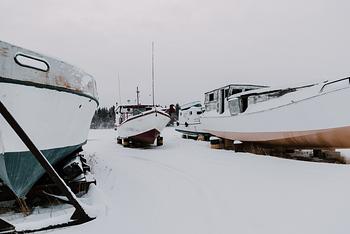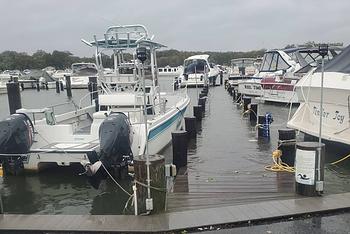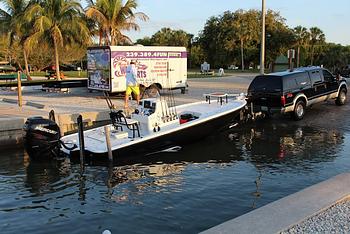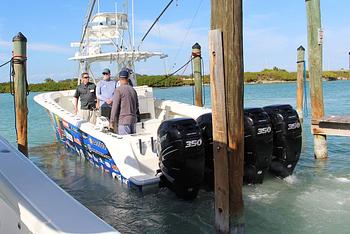Getting a boat license is, in many parts of the world, a legal necessity before you can operate your vessel, and should be the first thing you do when you purchase a new or used boat. Different countries and states will have different requirements (and some have no requirements at all) so there is no one-size-fits-all price and method of acquiring the licenses. While regions such as Europe have had boating licenses for many years, licensing in the United States is a relatively new phenomenon, and has been fueled by the rise in personal watercrafts. Not all states are requiring them, however, and there is a slow roll out in others starting with younger boaters and, over time, for adults.
Many people are surprised to find that boating licenses are often required on all vessels, including sailboats and personal watercraft (PWC), even canoes and stand up paddleboards, whereas in other places licensing is limited exclusively to motorized vessels. Getting a boating license is usually straightforward, and, in the United States for example, is actually much simpler than getting a car driver’s license as you don’t need to do any on-water examinations or training.
A boating license course will usually include information on:
- Safe operation and navigation
- Safety equipment
- Boating law
- Boating emergencies
- Trailering

How to get a Boating License in the US per State
Acquiring a boat license will typically require taking a course to ensure you know the marine code of conduct and safety information. There are some states, such as Alaska, Idaho, Wyoming, South Dakota, Maine, Arizona, and Arkansas, which have no legal requirements to operate a boat. However all the others have their own courses and methods of application, and a good place to start your research is the National Association of Boating Law Administrators (NASBLA) which details the basic training requirements for each state as well as accredited courses. Many courses can be taken online these days.
How to get a boating license in Texas
- Visit the Texas Parks and Wildlife website for detailed and up-to-date information on boater education.
- Anyone born on or after September 1, 1993 who operates any vessel over 15HP, a wind-blown vessel over 14 feet and all personal watercraft must take part in state-approved boater education.
- Fees start at $11 for a basic course.
- Boater education courses can be taken online or in classroom settings.
How to get a boating license in Florida
- Visit the Florida State website for the most up-to-date information on boating law.
- While Florida doesn’t have a boating license as such, anyone born on or after January 1, 1988 who operates a vessel powered by an engine producing 10HP or more must take a state-approved boater certification course.
- Courses can be taken online, cost around $40, and take approximately three hours to complete.
How to get a boating license in Alabama
- For detailed and up-to-date information visit the Alabama Law Enforcement Agency Marine Division.
- Alabama requires all persons over the age of 12 who want to operate a motorized vessel on their waterways to have a boating license.
- Boater education certificates can be obtained online via approved websites and you can apply for a license on their official website.
- Boater certificate courses cost around $40 and can be completed online, and licenses cost around $35. They don’t have an expiry and don’t need to be renewed.
How to get a boating license in New Jersey
- For detailed and up-to-date information visit the State of New Jersey Marine Services Bureau.
- All operators of powered vessels, irrelevant of age, must be in possession of a boater’s license in New Jersey. A boater’s license is an add-on to an ID card or Driver’s License.
- All vessel operators also need a Boat Safety Certificate issued by an approved training center. While a portion of the course can be undertaken online, you will have to complete an in-person, proctored exam to complete it.
How to get a boating license in California
- In 2018 California began implementing a new 7-year scheme for mandatory boater safety education law for motorized vessels.
- As of January 2023, anyone over the age of 50 need to pass an approved boater safety exam and apply for a Boater Card. By 2025 all boaters, regardless of age, require a Boater Card.
- The lifetime card fee is $10, while boater safety courses cost around $30 and can be taken online.

FAQs
How long does it take to get a boating license?
In most US states a boating license or boater education certificate is a simple online or in-person course that can take from three to six hours. Elsewhere in the world, you are often required to undergo more in-depth training and, in the US, you can also choose to take a more detailed training before setting off on your boat. Courses can last several days or a week and offer on-water training too.
What is the minimum age for getting a boating license?
Again this varies from state to state, but the minimum age you can usually operate a powered boat is 12 or 14 years old so long as there is someone over the age of 21 with you. Operators 14 years old or older may, in many states, legally operate a motorized boat without supervision after they have obtained a vessel operator's license/boaters education certificate.
How much does a boating license cost?
Boating licenses or boater education certificates are fairly inexpensive and depending on which state you’re in and what type of watercraft you want to operate, they can range from free up to around $50. More involved courses, or those offering on-water training, will cost more, however.
How to Get a New Boating License Card
Contact your relevant state website for information on how to apply for a replacement card or renew yours. Some states offer lifetime cards, whilst others need to update theirs periodically. A replacement card can usually be applied for online and costs around $5.

How to get a Boating License in the UK and EU
In other parts of the world, the legal requirements to operate a boat vary widely. In the United Kingdom, for example, licensing criteria and different than in the rest of Europe and the EU.
UK Pleasure Boat License: When it comes to pleasure boats, you must apply to your local council for a license to be able to take up to 12 passengers. You can search for each council using the postcode search on Gov.uk. This applies to sailboards, rowing boats, canoes, motor boats and even paddleboards and personal water craft (PWC). For more information check out our guides to Licenses for Sailing Boats and Licenses to Drive a Boat.
For licenses for watercraft operating on inland waterways owned by the Canal and River Trust you need to apply directly to them. You’ll have several options including short term visitor licenses, long term licenses, recreational licenses and business licenses. Prices vary depending on the length of the license and the length and beam of the boat.
International Certificate of Competence in the EU: Since leaving the EU the legislation for the UK is now different and you need an International Certificate of Competence (ICC) to operate a boat in EU waters including inland waterways. In addition, boaters need radio licenses and registration documents. For more details on the requirements check out our guide to Sailing Licenses in the EU.
The Bottom Line
Boating licenses represent the minimum amount of training you must do before going boating, but the more training you can do the better equipped you will be out on the water. The larger the boat the more experience and training it requires. Boater education saves lives and prevents accidents, and so it’s vital you know about boat operation, communications, navigation, and life-saving techniques before taking to the water.




